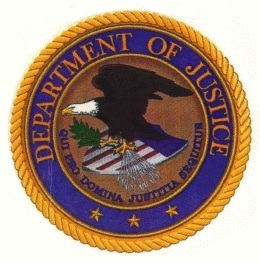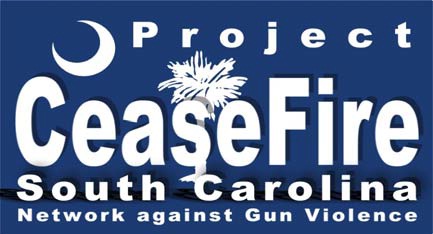New Help for Community Safety
Project Safe Neighborhoods: America's Network Against Gun Violence is a new federal initiative to reduce gun violence announced by President George W. Bush and Attorney General John Ashcroft. Project Safe Neighborhoods (PSN) seeks to commit $558 million over two years to reduce gun violence in America. The initiative includes partnerships among federal, state, and local law enforcement agencies; strategic planning incorporating such technologies as crime mapping, gun tracing, and ballistic analysis; training that brings together federal, state, and local officials to build effective teams; outreach to communities; and accountability for impact on community safety.
The nation's 93 U.S. Attorneys are taking the lead in bringing Project Safe Neighborhoods to the states and communities they serve. They are spearheading enforcement task forces, working with local officials to identify the most effective laws to use against gun-carrying criminals, and helping focus community attention and energy on reducing gun violence. South Carolina’s initiative under PSN is Project CeaseFire.
PSN will also provide funds for state and local governments to employ additional prosecutors focused on enforcing gun laws; target gun traffickers, armed violent offenders, and those prohibited from buying guns; promote community outreach; and improve record keeping.
Federal Laws---Some Examples
Federal laws provide a number of ways to prevent criminals from getting guns. People convicted of felonies risk a ten-year federal prison sentence if they possess or receive a firearm or ammunition. Those who are fugitives from justice face the same penalty, as do those convicted of a misdemeanor crime of domestic violence. Using or carrying a firearm during a federal crime of violence or a drug trafficking crime (federal or state) can result in a sentence ranging from five years imprisonment to death (in addition to any sentence imposed for the crimes). Possessing or discharging a firearm in a school zone can yield a five-year federal sentence.
State Laws---Some Examples
State laws differ, but many states provide for additional sentencing if a firearm is used in commission of a crime, if an unauthorized person is in possession of a firearm, or if a firearm is illegally sold to a prohibited owner. Some states impose obligations on parents to store weapons securely against children's access; some states limit numbers of weapons that can be purchased in a given time period. States set their own minimum and maximum sentences for violations of these state laws.
Promoting Individual and Community Action
 Reporting suspected illegal guns: Project CeaseFire and PSN help focus citizen energy on the fact that reports will be investigated. Partnerships that involve federal and local prosecutors, the Bureau of Alcohol, Tobacco and Firearms (ATF), and local law enforcement increase the range of reporting opportunities.
Reporting suspected illegal guns: Project CeaseFire and PSN help focus citizen energy on the fact that reports will be investigated. Partnerships that involve federal and local prosecutors, the Bureau of Alcohol, Tobacco and Firearms (ATF), and local law enforcement increase the range of reporting opportunities.
 Increasing support for local police and prosecutors: Removing violent criminals from the community makes it safer, makes residents less fearful, and improves the quality of life. These changes help build support for the entire criminal justice system, including local law enforcement and prosecutors.
Increasing support for local police and prosecutors: Removing violent criminals from the community makes it safer, makes residents less fearful, and improves the quality of life. These changes help build support for the entire criminal justice system, including local law enforcement and prosecutors.
 Emphasizing safe storage of firearms: Reminding community residents to store weapons in their homes securely against theft and curious children helps reduce the number of stolen guns in circulation and firearms injuries. It is estimated that more than 300,000 guns are stolen in home burglaries annually.
Emphasizing safe storage of firearms: Reminding community residents to store weapons in their homes securely against theft and curious children helps reduce the number of stolen guns in circulation and firearms injuries. It is estimated that more than 300,000 guns are stolen in home burglaries annually.
 Supporting programs that help people steer a new, law-abiding course: By making it riskier for criminals, Project CeaseFire makes it more attractive for them to enter and succeed in programs that help them reform.
Supporting programs that help people steer a new, law-abiding course: By making it riskier for criminals, Project CeaseFire makes it more attractive for them to enter and succeed in programs that help them reform.
 Encouraging young people to get involved in teen and youth courts: When peers help decide what should happen to youth who have broken the law, they learn firsthand the consequences for such behavior.
Encouraging young people to get involved in teen and youth courts: When peers help decide what should happen to youth who have broken the law, they learn firsthand the consequences for such behavior.
 Participating in Neighborhood Watch initiatives that involve residents in reporting suspicious behavior and working to improve their neighborhoods: By being involved, residents have a greater stake in keeping their neighborhoods free of crime.
Participating in Neighborhood Watch initiatives that involve residents in reporting suspicious behavior and working to improve their neighborhoods: By being involved, residents have a greater stake in keeping their neighborhoods free of crime.
 Supporting programs focused on children and young people: Programs such as youth-serving facilities like teen centers and Boys & Girls Clubs, after-school programs and activities, mentoring programs, and classes to help parents improve their skills help the entire community stay safe.
Supporting programs focused on children and young people: Programs such as youth-serving facilities like teen centers and Boys & Girls Clubs, after-school programs and activities, mentoring programs, and classes to help parents improve their skills help the entire community stay safe.
 Harnessing the energies of the faith community, schools, hospitals and clinics, businesses, community centers, youth-serving organizations, and youth membership groups: Working together is the best way to keep communities safe.
Harnessing the energies of the faith community, schools, hospitals and clinics, businesses, community centers, youth-serving organizations, and youth membership groups: Working together is the best way to keep communities safe.
Project CeaseFire Helps the Criminal Justice System
 The flexibility to choose federal or state prosecution helps ensure longer and more determinant sentences for criminals who possess or use guns illegally.
The flexibility to choose federal or state prosecution helps ensure longer and more determinant sentences for criminals who possess or use guns illegally.
 Community members are more inclined to report crime, or suspicions or illegal gun possession, because they are more confident that the offender will be punished.
Community members are more inclined to report crime, or suspicions or illegal gun possession, because they are more confident that the offender will be punished.
 By strengthening community partnerships, Project CeaseFire helps create a more useful balance among enforcement, prevention, and intervention efforts.
By strengthening community partnerships, Project CeaseFire helps create a more useful balance among enforcement, prevention, and intervention efforts.
 Properly authorized local law enforcement officials can arrest criminals under federal rather than state law.
Properly authorized local law enforcement officials can arrest criminals under federal rather than state law.
 Shared intelligence in task forces enables all law enforcement agencies to do a better job in their own spheres.
Shared intelligence in task forces enables all law enforcement agencies to do a better job in their own spheres.
 Coordinating federal, state, and local resources can enhance prosecutions significantly and help ensure their success, through services ranging from gun traces to forensic analysis.
Coordinating federal, state, and local resources can enhance prosecutions significantly and help ensure their success, through services ranging from gun traces to forensic analysis.
 Communities can be engaged in supporting Project CeaseFire as a partnership among a full range of state, local, and federal agencies that are working to prevent gun violence and reduce the fear, isolation, and civic decay it can cause.
Communities can be engaged in supporting Project CeaseFire as a partnership among a full range of state, local, and federal agencies that are working to prevent gun violence and reduce the fear, isolation, and civic decay it can cause.
Enforcement Is Key
Enforcement helps reduce gun violence in several ways:
 It reinforces the message that the community will not tolerate gun violence and will do everything it can to prevent it.
It reinforces the message that the community will not tolerate gun violence and will do everything it can to prevent it.
 It removes serious violent offenders from the streets and out of our neighborhoods.
It removes serious violent offenders from the streets and out of our neighborhoods.
 Under federal law, felons, drug dealers, and other specified individuals can face ten to 15 years---or more---in prison for illegally possessing a gun or ammunition or for using a gun in a drug-related crime.
Under federal law, felons, drug dealers, and other specified individuals can face ten to 15 years---or more---in prison for illegally possessing a gun or ammunition or for using a gun in a drug-related crime.
 It increases the risk faced by potential offenders because resources are focused more efficiently on enforcement and prosecution.
It increases the risk faced by potential offenders because resources are focused more efficiently on enforcement and prosecution.
At Heart, It's About Safer Neighborhoods
Project CeaseFire and the national Project Safe Neighborhoods has precisely that goal---helping neighborhoods become safer and helping community residents live the crime-free lives they deserve. And just as importantly, it's about our children and their future. As President Bush said in announcing this project, "For all our children's sake, this nation must reclaim our neighborhoods and our streets."
To learn more about the national
Project Safe Neighborhoods
Program, visit
www.projectsafeneighborhoods.gov

 U.S. Department
of Justice
U.S. Department
of Justice


